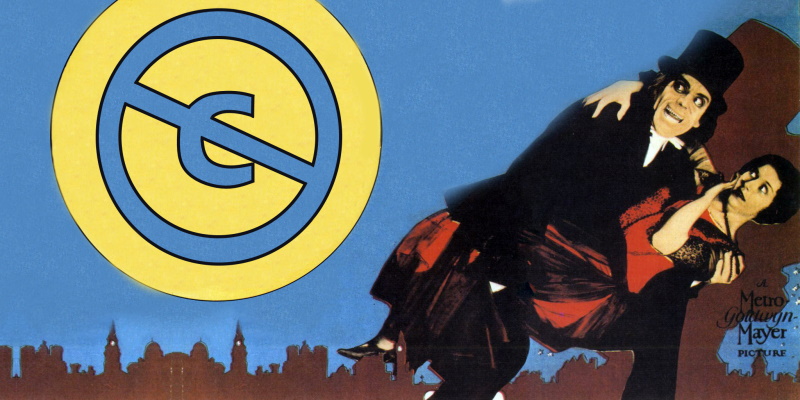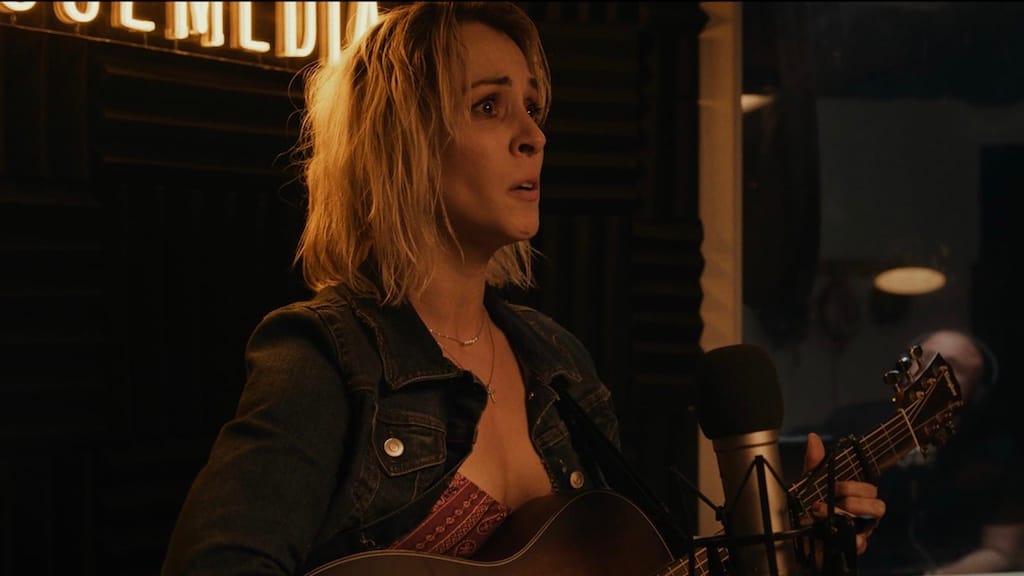
Public Domain Day – 2023
Jan 22, 2023
One of the more wholesome ways to mark the start of a new year is to flip through the freshly minted offerings of the public domain canon, those films, books, recordings, etc. that have been around so long that even Disney couldn’t convince the courts they ought not to be the unpoliced collective property of whoever cares enough to view them. What qualifies as of January 1st, 2023?
Well, as the Public Domain Review puts it:
Works by people who died in 1952, for countries with a copyright term of “life plus 70 years” (e.g. UK, Russia, most of the EU and South America);
Works by people who died in 1972, for countries with a term of “life plus 50 years” (e.g. New Zealand, and most of Africa and Asia);
Films and books published in 1927 for the United States.
As far as the availability of quality copies for great films from 1927 is concerned, slipping into the public domain means that we can expect their accessibility to skyrocket. But are there any 95 year old films from the crop of public domain newbies worth giving a second look? Of course there are:
The first ever Best Picture awards (yes plural) were allotted to two films which entered the public domain on the 1st. Outstanding Picture (the category which most consider to have evolved into Best Picture) went to Wings, a first world war epic made scarcely ten years from where the plot kicks off, while Best Unique and Artistic Picture was presented to FW Murnau’s Sunrise: A Song of Two Humans. Wings is a rousing, captivating film, and with its astonishing battle scenes and aerial sequences, restaged precisely to scale, it’s an excellent choice for Best Production, but Sunrise occupies another level of artistic ambition and achievement. Cutting the greatest films of all time down to only a handful, you’d find Sunrise would remain pressed firmly under the thumb.
Another of historical value; The Jazz Singer was famously released as the first feature length talkie, and the first ever movie musical. There are highlights; a uniquely Jewish parable about American cultural identity, and the inimitably appropriate first spoken line in major motion picture history: “Wait a minute, wait a minute- You ain’t heard nothing yet!”. Regardless, The Jazz Singer has aged more than most classics of its time, featuring a simple, bordering on unengaging plot, with a heavy focus on the talents of Al Jolson (who it seems isn’t the force of entertainment he once must have been, considering his label of “world’s greatest entertainer”) and with heavy incorporation of minstrelsy and black face. Still, this is a piece of history, well worth inspecting.
The 1965 MGM vault fire took with it hundreds of archived films, the entirety of Vault 7’s contents, a travesty somewhat overshadowed by one movie in particular; the most sought after lost film of all time… London After Midnight. Why, with 90 percent of all cinema released before 1929 lost to neglect, does this Todd Browning (director of Dracula and Freaks) horror demand so much attention? Lon Chaney, that’s why. The ‘man of a thousand faces’, best known for his transformations as the deformed Phantom of the Opera and Quasimodo, Chaney’s most haunting work may well have been lost to time, were it not for surviving promotional stills and posters, periodically republished in Famous Monsters of Filmland, immortalizing this otherworldly, ghoulish visage.
With the film now in the public domain, one can only dream of waking up one morning with a full copy uploaded to YouTube by an anonymous source (along the lines of the once lost Sesame Street episode featuring the Wicked Witch of the West, or Jackie Chan’s first film Big and Little Wong Tin Bar), though for the time being London After Midnight remains frustratingly evasive for historians, but the film’s original cutting continuity has been reassembled by TCM. Chaney, being perhaps the greatest actor of the silent era, produced a few films from 1927 that haven’t been lost and are well worth your time; including the psychosexually charged, if deceptively hokey The Unknown.
Another horror, and one you’ll actually be able to watch, is The Lodger: A Story of the London Fog, the first truly notable Hitchcock directorial effort, and, not coincidentally, his first thriller. The Lodger, which concerns the hunt for a Jack the Ripper-like serial killer terrorizing Londoners, looks great, it’s tense and the young Hitchcock’s direction is strangely inventive in its ‘infancy’. Other Hitchcock’s of 1927 were melodrama Downhill, and The Ring, a romance involving a love triangle between two boxers and the object of their affections.
If your idea of romance doesn’t involve Alfred Hitchcock, you could take up 7th Heaven by Frank Borzage, who’s poverty-stricken star-crossed lovers are torn apart by the arrival of the 1st World War, though, make no mistake, the majority of the film simply chronicles their nascent relationship. Wistful, sweet, and beautifully directed, 7th Heaven nevertheless plays second fiddle to Sunrise (also starring Janet Gaynor).
It, starring the vivacious Clara Bow, is a fine comedy of misunderstandings, made worth the price of admission by the original ‘It’ girl herself. Now that you haven’t got to pay a cent, there’s no reason not to enjoy the charisma of one of early Hollywood’s most enduring stars (catch it before seeing Margot Robbie’s take on a Clara Bow-type in Babylon).
My Best Girl’s Mary Pickford can’t quite go toe-to-toe with Bow, but it is certainly the superior comedy, and Pickford’s chemistry with her co-star Charles Rogers is startling. The sexual politics of both films reflect their day, though the genre conventions of My Best Girl have stuck more firmly than most (who can forget the ‘going after her in the rain’ scene).
If we’re talking comedies (*and not talkies*) then we can’t sidestep the clowns; The Kid Brother, starring Harold Lloyd, is all round great, but specifically ramps up in its final third (as was often the case in silent slapsticks) featuring one of the funniest anythings ever put to film involving Lloyd, a brute, a shipwreck, a monkey, and a pair of shoes. The stone-faced Buster Keaton had released his masterpiece, The General, the year before, meaning that’s already in the public domain, and that’ll have to suffice since 1927’s College features one of Keaton’s rare blackface portrayals in the midst of an otherwise light romp centred on athletics-themed gags.
Maybe Laurel and Hardy’s greatest short, The Battle of the Century is missing a brief scene bridging its two key sequences. What has, however, remained intact is the extravagant pie-fight to end all pie-fights (featuring in the realm of three to ten thousand cream pies!).
In sharp contrast to the barely 70 minutes of most silent comedies, we have Abel Gance’s epic Napoleon, the first of a planned six biopics spanning the fabled leader’s lifetime, clocking in at an astounding 5 hours and 33 minutes all by itself. Napoleon’s many filmic innovations and meticulous historical recreations set it aside as a uniquely important work when silents were at their peak, its triptych-presentation and frenetic use of montage representing a fascinating vision of cinematic language, an incredible, merciless feat of jingoistic amour propre. Certain shots feature upwards of 60 layered exposures, others make very early use of a handheld camera, thrust into the action with minimal choreography. On a story level, things lack intricacy; Gance, in painting history broadly and without question, deifies Bonaparte much of the time (this is probably the only biopic that might have satisfied the dictator himself). The spectacle of Napoleon, for all its emotional emptiness, is just unbelievable, pitched at the breakneck propulsion of cinematic evolution, these filmmakers worked with no conception of limitations or restrictions. Napoleon is unashamedly symbolic, patriotic, grandiose and self-important.
It’s the sort of pure cinema more readily espoused in the name of Sergei Eisenstein, who’s great October: 10 Days that Shook the World, recreating its subject with utmost realism, is powered home with an accompanying score by Dmitri Shostakovich. This is as close to witnessing the October revolution as we could ever come. Eisenstein’s most common nickname was ‘the father of montage’, more than that, he was the great communicator.
Towering monolith of science-fiction Metropolis, of which everything that can be said has been said, also enters. The strange and oversimple story remains as clunky (if entertaining) as ever, but it’s vision for science fiction and Lang’s near unmatched mastery of the craft mean Metropolis is more than likely to outlast most of the films listed in this article.
A genre pioneered in the silent era unlikely to make a comeback any time soon is the City Symphony, largely montage-driven characterless documentaries (though overall outlines and specific sequences were written out beforehand), meant to depict an environment, typically a metropolis. Berlin: Symphony of a Great City is precisely that; Berlin is the city, and the edit is the symphony, a hallucinatory whir of busy-bodies and automation (trains arriving, windows opening, flats stepping, newspapers unfurling, hallways crowding, switches switching, dials dialing, drunks drinking from dawn till dusk), rendering the city one teeming organism of brick, mortar, smoke and speed. The best city symphonies (Rain and Man with a Movie Camera) wouldn’t arrive until 1929, but for the time being, Berlin is an excellent, and archetypal example of a genre as dead as it could possibly be.
Excellent experimental shorts, strangely, are less easy to come by in 1927. Combat de Boxe is an aggressive, avant-garde de- and re-construction of a heavyweight match with a disorienting pull. Prelude sees a man haunted by visions of premature burial inspired by Rachmaninoff’s Prelude, made with less of a formalist approach and more in the spirit of a terrible nightmare.
One of the irresistible Douglas Fairbanks’ lesser swashbuckling adventures, The Gaucho, still beats out his watered-down competition, The Beloved Rogue among the better of them. Josef Von Sternberg set the trend for gangster pictures with Underworld, essentially inventing film noir. Chicago, based on the same play as the Best Picture winning musical. The King of Kings, an early religious epic by the great Cecil B. DeMille. The naturalistic menage a trois of satire Bed and Sofa. The Cat and the Canary. The Red Mill. Casanova. Uncle Tom’s Cabin. Belphégor. Upstream. It never ends.
Plenty of people don’t care much for anything old enough to qualify for public domain status, and if you love movies enough to do so, you probably didn’t need the classification as go-ahead to watch Metropolis. All the same, it’s a wonderful excuse to dive into your favorites again, or into the lesser known for the first time. 1927 was a spectacular year for the movies. If you’re pressed for time here’s a prioritized list:
1. Sunrise: A Song of Two Humans
2. Metropolis
3. The Kid Brother
4. Napoleon
5. October: 10 Days that Shook the World
6. Wings
7. The Lodger: A Story of the London Fog
8. 7th Heaven
9. Bed and Sofa
10. The Battle of the Century
11. My Best Girl
12. The Unknown
13. Berlin: Symphony of a Great City
14. It
15. The Gaucho
16. The King of Kings
17. Chicago
18. Underworld
19. College
20. The Jazz Singer
21. Combat de Boxe
22. Belphégor
23. The Cat and the Canary
24. Casanova
25. The Red Mill
26. Upstream
27. The Ring
28. Downhill
29. Prelude
30. The Beloved Rogue
Publisher: Source link
TV Shows That Got Canceled In 2024
TV Shows That Got Canceled In 2024 Which 2024 canceled TV show will you miss the most? Share your pick in the comments! Disclaimer: This story is auto-aggregated by a computer program and has not been created or edited by…
Dec 22, 2024
How The Talk Emotionally Ended After 15 Years
The Talk has officially said "Goodbye." After 15 seasons and 2,993 episodes, the CBS daytime show came to an end on Dec. 20 with a heartfelt farewell from hosts Akbar Gbajabiamila, Amanda Kloots, Natalie Morales, Jerry O'Connell and Sheryl Underwood. The episode began with a standing ovation for the…
Dec 22, 2024
Jennifer Lopez Asked About Turning 60, Age
Jennifer Lopez Asked About Turning 60, Age Never ask a woman her age, a man his salary, or Jennifer Lopez how she feels about turning 60. On Sunday, the actor was interviewed by Variety amid the release of her new…
Dec 21, 2024
Lala Kent Shares Text With Ally Lewber After James Kennedy’s Arrest
The BCU (Bravo Cinematic Universe) was shaken on March 3, 2023, when it was confirmed that Tom and Ariana had ended their nine-year relationship amid the revelation that he'd had a seven-month affair with Raquel. "I made mistakes, I was…
Dec 21, 2024











